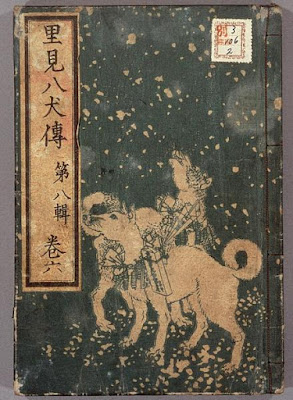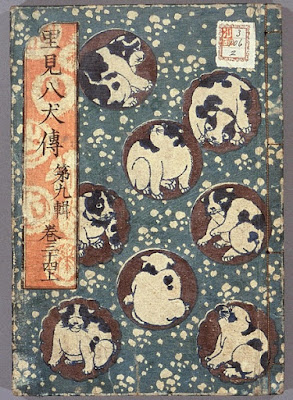目次/
Contents
1)
寺の歴史
/ History
of the Temple
2)
山伏の開祖 /
Originator Yamabushi
3) 紅葉 / Autumn Colour
3) 紅葉 / Autumn Colour
 小松寺 〒295-0013 千葉県南房総市千倉町大貫1057 Komatsu Temple
address:
Chiba Prefecture, Japan 295-00131057 Onuki, Chikura-cho, Minamibōsō City, |
 |
| 房総半島 / Bōsō Peninsula 濃いピンク部分が南房総市 Deep Pink Part is Minamibōsō City 画像は下記より/ This from below Wiki |
1) 寺の歴史 / History of the Temple
公式サイト: ★
'寺伝' によると...(私が要約してます)
'『修験者
(山伏)
の開祖と言われる役小角 [エンノオヅノ / 役行者 (エンノギョウジャ)
/ 634 - 701] によって、文武
(モンム)
天皇 (683
- 707) 時代
(697
-707) に、草庵が建てられたのが始まりです。'
山伏によって開かれたお寺という点でわくわくしてきます。
'もともと、この土地は、山岳修行者 (山伏 / 修験道) の信仰を集める霊地でした。'
'718年に庵が堂に建て替えられ、'巨松山檀特寺
(キョマツダントクジ)'
という名を得て、創建され、その後、火事に2回見舞われ、再建も2回行われました。'
何度不幸に見舞われても、霊地なので、ここを離れないのですよね、きっと。
霊地なのに、いろいろ起こるのが不思議であり、当然にも思えます。
堕落すると、戒めに火事にされてしまうということも考えられますし....。
霊地なのに、いろいろ起こるのが不思議であり、当然にも思えます。
堕落すると、戒めに火事にされてしまうということも考えられますし....。
お寺を訪ねたのは2016年11月ですが、書いているのは2017年6月です。
天台宗も真言宗 も山伏と密接な関係にあるようです。
寺伝は、
小松寺の七不思議というのもあります。→★
役行者が創設者であり、霊地であり、財宝伝説があり、七不思議があります。
呪術めく世界が感じられます。
好きな世界です!
補足
"南総里見八犬伝" は、滝沢馬琴 (1767 - 1848) によって書かれ、28年をかけて完結した(初版: 1814 ~ 完結: 1842)、全98巻、106冊の長編作品です。
物語についてはWikiから、下記
"『南総里見八犬伝』は、室町時代後期を舞台に、安房里見家の姫・伏姫と神犬八房の因縁によって結ばれた八人の若者(八犬士)を主人公とする長編伝奇小説である。
共通して「犬」の字を含む名字を持つ八犬士は、それぞれに仁・義・礼・智・忠・信・孝・悌の文字のある数珠の玉(仁義八行の玉)を持ち、牡丹の形の痣を身体のどこかに持っている。
関八州の各地で生まれた彼らは、それぞれに辛酸を嘗めながら、因縁に導かれて互いを知り、里見家の下に結集する。"
私は、NHKの人形劇 : "新八犬伝" [1973 - 1975 / 人形作家:辻村ジュサブロー (1933 - / ★) によって『南総里見八犬伝』を知りました。
(辻村ジュサブロー 氏もこの時知ります)
その後も映画: "里見八犬伝" [1983 / 監督:深作欣二 (1930 -2003)] や
アニメーション:『八犬伝―東方八犬異聞―』(英語文のあとに画像)
[2013 / 原作: あべ美幸 (1972-) / 総監督: ヤマサキ オサム (1962 - )]
で親しんでいました。
ですが、まだ原作に触れたことはありません。
 『南総里見八犬伝』
国立国会図書館所蔵
|
 |
History of the Temple
After
"Taka
Falls" ("Awamata Falls") in Yōrō
Keikoku, we went southward in the Bōsō Peninsula and
visited Komatsu Temple.
Official
site : ★ only
in Japanese
They say about 'History of Temple' (my summarized translations) below
’En no Ozuno [Enno Gyōja (634 - 701)] was original Yamabushi who established a thatched hut in Emperor Monmu's reign (697 -707) which was the beginning of the temple.’
I am thrilled that an actual Yamabushi was their founder.
Yamabushi are Japanese mountain ascetic hermits, according to traditional Japanese mysticism, are believed to be endowed with supernatural powers, sometimes they are called Shugendō.
’Basically the area has been sacred ground for Yamabushi.’
So Enno Gyōja came here, didn't he?
'In
718, the hut was replaced with a hall, named : 巨松山檀特寺 :
'Kyomatudantoku-Temple' and later the temple twice burned down and was twice rebuilt.'
They suffered some calamities, although they have stayed here, because here is sacred ground, I think.
I wonder even though here is sacred, sometimes something negative happened here, but on the other hand I wonder if these setbacks take are the sacred ground cleansing the area, admonishing people.
'A long time ago, they changed their religious affiliation from Tendai to Shingon Buddhism and as of June 2017, their chief priest : Abbot : Jyushoku is the 49th of Shingon-shū Chizan-ha.'
I
visited the temple in November, 2016, although I am writing this in June,
2017.
Tendai and Shingon Buddhism seem to be strongly connected with Yamabushi.
Tendai and Shingon Buddhism seem to be strongly connected with Yamabushi.
'This is the end of the 'History of this Temple' , it is a 'Treasure Legend' in a fictitious narrative, "Nansō Satomi Hakkenden".'
What!? "Nansō Satomi Hakkenden"? 'Treasure Legend'?
The temple has the seven wonders, too. →★ only in Japanese.
The temple has the seven wonders, too. →★ only in Japanese.
The founder was Enno Gyōja, there is sacred ground, the seven wonders and 'Treasure Legend'.
I feel here is about magical folklore.
I do like the world!
Supplement
"Nansō Satomi Hakkenden" : "The Eight Dog Chronicles" is a Japanese epic novel in 98 volumes, 106 books by Takizawa Bakin (1767 - 1848).
The books were written and published over 28 years (1814 to 1842).
The story depicts the mystical tales and adventures of 8 samurai warriors who are half-brothers, all of them descended from a dog.
Their last names begin with the Japanese word : 犬 for dog and their bodies have peony shape birthmarks somewhere.
Their last names begin with the Japanese word : 犬 for dog and their bodies have peony shape birthmarks somewhere.
(And also I knew Jyusaburō Tsujimura, too.)
Later, I have been fond of watching the story again, in a film :
"Legend of the Eight Samurai " [1983 / Director : Kinji Fukasaku (1930 -2003)]
and in an animation :
"Hakkenden : Tōhō Hakken Ibun" : "Hakkenden : Eight Dogs of the East" [Original : Miyuki Abe (1972-) / General Director : Osamu yamasaki (1962 - )].
However, I haven't read the original.
 漫画、初版『八犬伝―東方八犬異聞―』の表紙 |
| "Hakkenden : Tōhō Hakken Ibun" : "Hakkenden : Eight Dogs of the East" Cover of the first manga volume 画像は下記より / This from below Wiki |
 |
| 伏姫神と犬江親兵衛 歌川国芳 (1798 - 1861) Princess Fuse saving Inue Shimbei from "Nansō Satomi Hakkenden" Utagawa Kuniyoshi (1798 - 1861) 画像は下記より / This from below Wiki |
2) 山伏の開祖 / Originator Yamabushi
寺伝には山伏の開祖とあり、Wikiでは、呪術者であるとあります。
英語版のWikiでは、役行者は、日本のマーリン (Merin) のようであると説明しています。
なるほど、私が惹かれてしまうわけです....。
(マーリンとは英国、中世の大魔術師でアーサー王に仕えたと言われ、数々の物語、ドラマ、映画などの作品にとりあげられています : ★)
天皇の命によって作られた史書の『続日本紀 (ショクニホンギ)』(797) や
最古の説話集の『日本現報善悪霊異記(ニホンコクゲンホウゼナジュリョウキ)』[822/ 景戒(キョウカイ/ケイカイ) - 生没年不詳]
に、彼の不思議な力や話が書かれています。
後世の伝説は、ここで→★ / ★
例としてしは、役行者は、鬼神を使役できるほどの法力を持っており、下の2枚の絵には、役行者が、前鬼・後鬼 (ゼンキ・ゴキ) を伴って描かれています。
この鬼達は夫婦です!
前鬼・後鬼の他のおもしろい話はここで→★
英語版のWikiでは、役行者は、日本のマーリン (Merin) のようであると説明しています。
なるほど、私が惹かれてしまうわけです....。
(マーリンとは英国、中世の大魔術師でアーサー王に仕えたと言われ、数々の物語、ドラマ、映画などの作品にとりあげられています : ★)
 『魔術師 MERLIN』 英国のドラマシリーズ / (2008 - 2012 / BBC) |
"Merlin" British fantasy-adventure TV programme (2008 - 2012 / BBC) 画像は下記より / This from below Wiki |
天皇の命によって作られた史書の『続日本紀 (ショクニホンギ)』(797) や
最古の説話集の『日本現報善悪霊異記(ニホンコクゲンホウゼナジュリョウキ)』[822/ 景戒(キョウカイ/ケイカイ) - 生没年不詳]
に、彼の不思議な力や話が書かれています。
後世の伝説は、ここで→★ / ★
例としてしは、役行者は、鬼神を使役できるほどの法力を持っており、下の2枚の絵には、役行者が、前鬼・後鬼 (ゼンキ・ゴキ) を伴って描かれています。
この鬼達は夫婦です!
前鬼・後鬼の他のおもしろい話はここで→★
役行者は、奈良で生まれ、活躍の場は主に関西でした。
役行者は、一度、京都から伊豆大島へ流された時期 (699 -701) があり、この時期に小松寺のもととなる草庵を創設したと、寺としては信じているのだと思います。
複数の文芸作品にも彼は取り上げられています→★

『北斎漫画』
by Hokusai (1760
-1849)
Enno
Gyōja attended by Oni's
couple : Zenki (husband) and Goki (wife).
They say that they were his followers or Shikigami. Oni is a kind of yōkai from Japanese folklore, |
Originator Yamabushi
The temple said that the founder, Enno Gyōja (En no Ozuno / 634 - 701) was the first Yamabushi, and who created the idea.
They say that Enno Gyōja had been endowed with big powers, for example, he could control demons.
According to English Wikipedia about Enno Gyōja, below
"This path may or may not have had a founder, as the myths surrounding
En no Gyōja are numerous and complex; he is quite similar to a Japanese Merlin in this way."
Indeed, now I understand why I am attracted by Enno Gyōja....
In two pictures above and below, Enno Gyōja is accompanied by Oni : Zenki and Goki.
The two Onis are a married couple.
He was born in Yamato Province : currently Nara Prefecture, in 634 and mainly worked in the Kansai region.
Once he was exiled from Kyoto to an Izu Ōshima island, I think that the temple believe that when he was in Izu Ōshima island, he visited here and the thatched hut.
He has featured in many literary art works.
 役行者肖像画 室町時代 (1336 -1573) |
| 前鬼・後鬼を伴っている メトロポリタン美術館 所蔵 Portrait of En no Gyōja Muromachi period (1336 -1573) He is accompanied by two demons. Metropolitan Museum of Art |
 |
『都年中行事画帖 (ミヤコネンチユウギョウジガジョウ) / 聖護院入峯(ショウゴインニュウブ)』(1928)
[著:江馬 務 (エマ ツトム / 1884 -1979) / 画:中島荘陽(ナカジマ ソウヨウ)]
画帖一覧→ ★ (おもしろいので是非クリックしてみてください)
"Miyakonenchugyouji
Gajyo,Shougoinnyubu" (1928)
Writer
: Tsutomu Ema (1884 -1979)
Picture
: Sōyō Nakajima
You
can see the all book's pictures → ★ (It
is interesting, please click)
画像は下記より/ This from below
山伏の装束 -
下記、Wikiより
"山伏は、頭に頭巾 (トキン) と呼ばれる多角形の小さな帽子のような物を付け、
Yamabushi's Costume - (I translate Japanese Wiki myself)
'Yamabushi
wear a Tokin, a
small hat or a box on their heads,
hold
a shakujyo (monk
staff)
literally 'tin stick',
wear Kāṣā and
Suzukake.
And
also some carrying a Charonia
tritonis (a big shell)
as
a musical instrument (horn) for signaling in
mountains.' |
3) 紅葉 / Autumn Colour
ツアーの中に、小松寺が組まれているには、"紅葉が綺麗だから"ということでしょう。
私の写真も、紅葉が主役です。
I guess that our tour included the temple just because its autumn colour is beautiful.
The main of my photographs is autumn colour, too.
I guess that our tour included the temple just because its autumn colour is beautiful.
The main of my photographs is autumn colour, too.
駐車場から小松寺へ
From Carpark to Komatsu Temple
From Carpark to Komatsu Temple
 |
| 駐車場から小松寺に向かう道が素敵です。 The path was lovely from the carpark to Komatsu Temple. |
 |
| 母と姉を後ろから From behind, my sister and our mother |
 |
| 池や小島があります。 There is a pond with a small island.   帰り道では光がさして明るくなっていました。 As we returned the sun came out, so the pond was much brighter. |
 |
| お寺の敷地の周りがお掘風になっているように見えました。 通常の川が乾いていた時なのか、 お堀として作られ、現在は水が溜められていない状態になっているものなのか、 わかりませんでした。 It seems to be a moat around the temple. I do not know if it was just a dried-up river at that time or if it was a moat and now they do not keep water there. |

お寺が見えてきました。
The temple is coming.
|
境内 / Precincts of the Temple
 |
| "葉書"の語源となった木 This tree became the origin of the word : "Hagaki" : post-card in Japan. If the back of the leaf is scratched it becomes black colour, so people could exchange information in Sengoku Period : the Age of Civil War (1467 - 1590).  |









0 件のコメント:
コメントを投稿